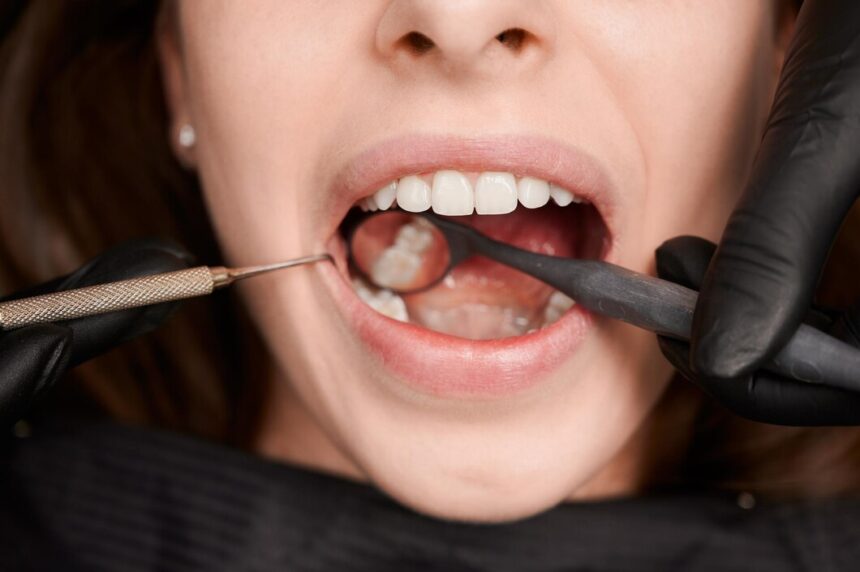Dental caries, commonly known as cavities, are one of the most prevalent dental issues affecting individuals of all ages. They are caused by the gradual decay of tooth enamel, which can lead to pain, infection, and even tooth loss if left untreated. Understanding the symptoms, causes, and available treatments for dental caries is essential for maintaining good oral health.
Symptoms of Dental Caries
The symptoms of dental caries can vary depending on the severity of the decay. Early stages may be asymptomatic, but as the condition progresses, individuals may experience the following:
- Tooth Sensitivity: Increased sensitivity to hot, cold, or sweet foods and beverages can be an early sign of cavities. This sensitivity occurs due to enamel erosion exposing the underlying dentin.
- Visible Holes or Pits: As the decay advances, visible holes or pits may form on the surface of the teeth. These can often be seen during routine dental check-ups.
- Toothache: Pain in the affected tooth can occur, ranging from mild discomfort to severe pain, especially when chewing or applying pressure.
- Discoloration: The affected tooth may appear discolored, with white, brown, or black spots indicating areas of decay.
- Bad Breath: Persistent bad breath (halitosis) can be a symptom of cavities, especially if bacteria are present in decaying tooth matter.
Causes of Dental Caries
Several factors contribute to the development of dental caries, including:
- Poor Oral Hygiene: Inadequate brushing and flossing allow plaque—a sticky film of bacteria—to accumulate on the teeth. Plaque produces acids that attack tooth enamel, leading to decay.
- Diet High in Sugars and Starches: Consuming sugary and starchy foods provides fuel for bacteria in the mouth. Frequent snacking on these foods can increase acid production, promoting cavity formation.
- Dry Mouth: Saliva helps neutralize acids in the mouth and wash away food particles. Conditions that reduce saliva production, such as certain medications or health issues, can increase the risk of cavities.
- Tooth Anatomy: Some individuals have naturally deep grooves or pits in their teeth, making them more susceptible to plaque buildup and decay.
- Frequent Snacking: Eating snacks throughout the day can create a constant supply of sugar for bacteria, increasing the risk of cavities.
Treatments for Dental Caries
The treatment for dental caries depends on the extent of the decay. Common treatment options include:
- Fluoride Treatments: For early-stage cavities, fluoride treatments can help remineralize tooth enamel and reverse decay. This is often done in a dental office.
- Fillings: If a cavity has formed, a dentist will remove the decayed portion of the tooth and fill it with materials such as composite resin, amalgam, or glass ionomer.
- Crowns: In cases of extensive decay where the tooth structure is severely compromised, a crown may be placed over the tooth to restore its shape and function.
- Root Canals: If the decay reaches the tooth’s pulp, a root canal may be necessary to remove the infected tissue. The tooth will then be filled and sealed.
- Extractions: In severe cases where the tooth is beyond repair, extraction may be necessary to prevent further complications and infection.
Prevention of Dental Caries
Preventing dental caries is possible with good oral hygiene practices and lifestyle choices:
- Brush Twice Daily: Use fluoride toothpaste and brush for at least two minutes, twice a day.
- Floss Daily: Flossing removes food particles and plaque between teeth, where a toothbrush may not reach.
- Limit Sugary Foods: Reduce the consumption of sugary snacks and drinks. Opt for healthy snacks such as fruits, vegetables, and nuts.
- Regular Dental Visits: Schedule routine check-ups and cleanings with a dentist to monitor oral health and catch any issues early.
- Use Fluoride Products: Incorporate fluoride mouth rinses and treatments as recommended by your dentist.
Dental caries are a common but preventable condition that can lead to significant oral health issues if not addressed. By understanding the symptoms, causes, and available treatments for cavities, individuals can take proactive steps to protect their dental health. Maintaining good oral hygiene, a balanced diet, and regular dental visits are essential for preventing dental caries and ensuring a healthy smile.










